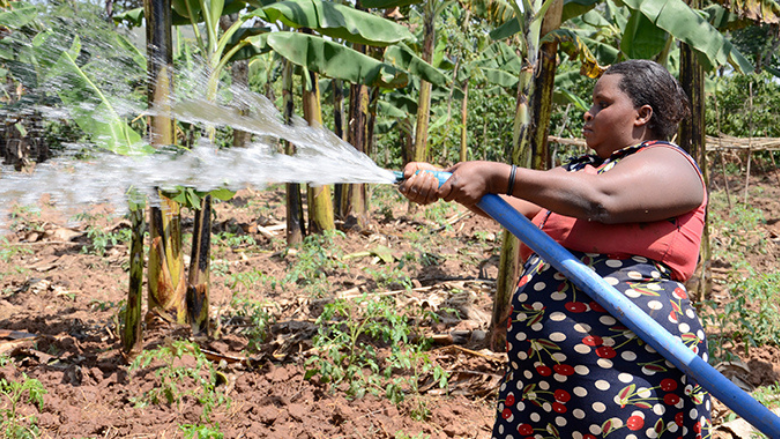
Water is an irreplaceable resource, fundamental for human survival and the continuity of agricultural practices. In Uganda, where agriculture forms the bedrock of the economy, employing a substantial portion of the populace and making a significant contribution to the nation’s GDP, challenges such as water scarcity, inefficient irrigation methods, and the specter of climate change loom large.
Agriculture plays an instrumental role in Uganda’s economic landscape, with over 70% of the population reliant on it for livelihood and the nation’s GDP bolstered by its productivity. Most Ugandan farmers hinge their hopes on rain-fed agriculture, placing them at the mercy of unpredictable weather patterns. However, these patterns have grown increasingly erratic due to climate change, ushering in prolonged droughts, irregular rainfall, and other meteorological anomalies capable of devastating crops.
One of the foremost challenges in the quest for water conservation in Uganda’s farming industry is the inescapable grip of climate change. The effects are palpable, with altered rainfall patterns and rising temperatures threatening to drain water resources, necessitating the adaptation of farming techniques to the new climatic order.
The adoption of modern irrigation systems, such as drip and sprinkler systems, is a beacon of hope in reducing water wastage. These methods facilitate precise water delivery directly to the root zone, optimizing water use efficiency and alleviating the strain on resources.
Promoting rainwater harvesting is another promising avenue. Farmers can harness and store rainwater for agricultural use during dry spells through the implementation of cost-effective systems like roof gutters and storage tanks. This simple yet effective approach can be a game-changer.
Moreover, the cultivation of drought-resistant crop varieties and the practice of crop rotation can play pivotal roles in diminishing water demand while enhancing soil health. These strategies not only conserve water but also fortify the agricultural sector against climate-induced shocks.
Education is a cornerstone of sustainable water management. Disseminating knowledge about water-efficient farming practices to farmers is indispensable. Collaboration between government bodies and non-governmental organizations is paramount in this regard.
Lastly, policy intervention by the Ugandan government is crucial. Incentives for water-saving practices and measures to discourage excessive water use, such as subsidies, grants, and regulations, must be enacted to foster responsible water management.
With climate change wielding its disruptive force over traditional rainfall patterns and exacerbating water scarcity, Uganda’s agriculture sector stands at a crossroads. Collaboration among government entities, non-governmental organizations, and farmers is the linchpin for the adoption of water-efficient methods, guaranteeing a prosperous agricultural future for Uganda. In this endeavor, Uganda can safeguard its agricultural productivity, fortify its economy, and contribute its part to the global battle against climate change.
Sources:


